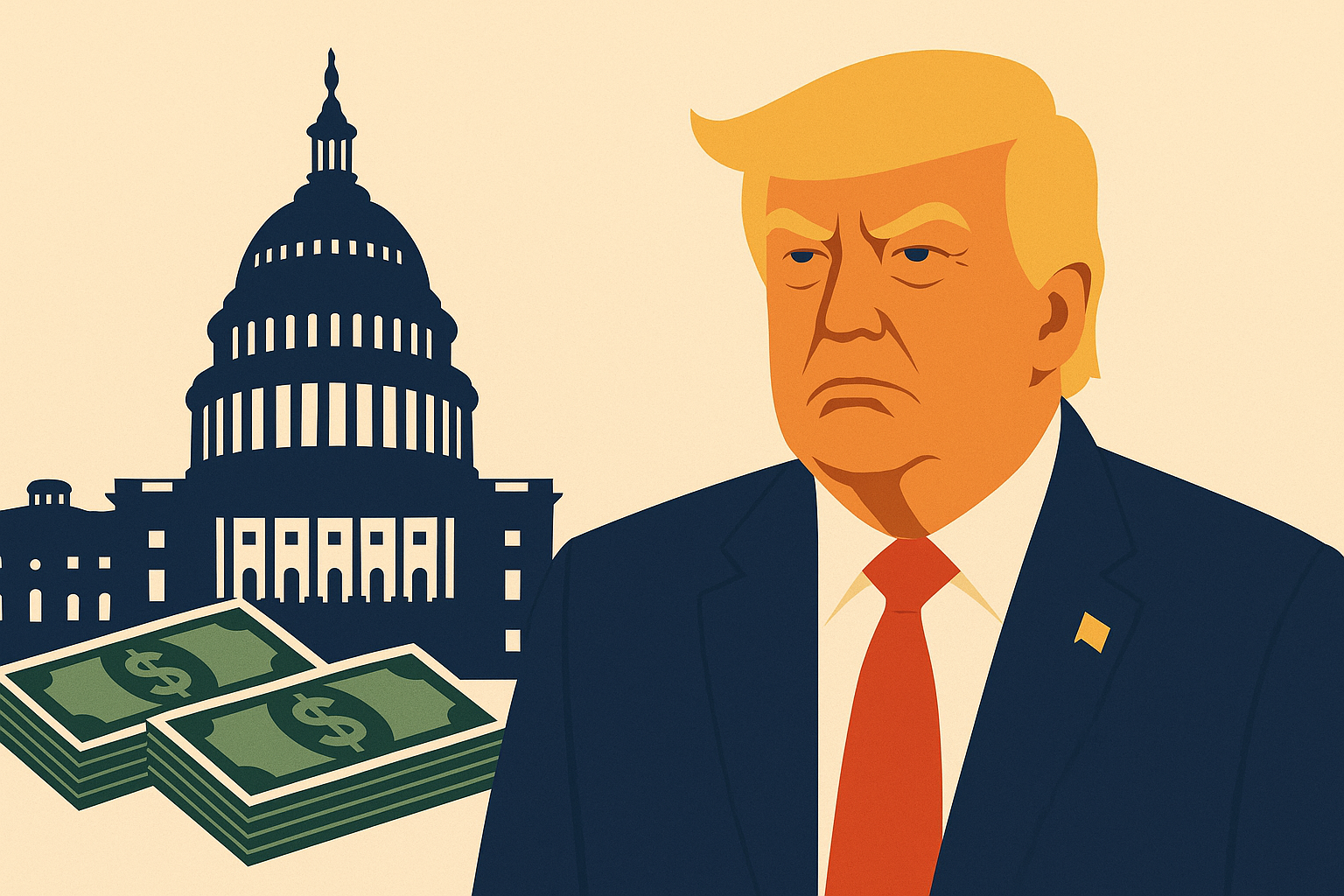WASHINGTON — The U.S. Senate has narrowly approved a $9 billion federal spending cuts package that would reduce funding for public broadcasting, global health initiatives, and international aid programs. The vote, held in the early hours of July 17 after over 12 hours of debate, moves the bill closer to final passage ahead of a critical July 18 deadline.
The measure, originally proposed by President Donald Trump in early June, is part of a broader push by the administration to reduce federal spending. According to the Department of Government Efficiency, the administration has already identified nearly $200 billion in overall savings. The current package represents a small but politically significant portion of that total.
Key Targets of the Cuts
The legislation proposes substantial reductions to:
- The Corporation for Public Broadcasting – which helps fund NPR and PBS.
- Foreign aid programs – including the U.S. Agency for International Development (USAID) and contributions to the World Health Organization (WHO).
- Other global health efforts – though a proposed $400 million cut to global AIDS prevention was removed during Senate deliberations.
The decision to remove the AIDS funding cut followed objections from several senators, including Republican Senators Lisa Murkowski of Alaska and Susan Collins of Maine. Both ultimately voted against the bill.
Next Steps: House Approval
Now that the Senate has approved the measure, it returns to the House of Representatives, which must approve the Senate’s amendments before President Trump can sign it into law. The administration’s formal request expires at midnight on July 18, putting pressure on House lawmakers to act swiftly.
Despite earlier criticisms from House fiscal conservatives over potential compromises in the Senate version, passage is expected before the deadline. Chair of the House Appropriations Committee, Rep. Tom Cole (R-OK), acknowledged the political challenge of the cuts:
“There are things in there I would’ve preferred not to cut,” he told reporters on July 16. “But… you’re going to end up having to cut some things you don’t want to cut. That’s just the nature of it.”
Political and Policy Implications
The spending cuts reflect a broader ideological divide between fiscal conservatives seeking to trim government programs and moderates concerned about the impacts on public services and foreign aid. While proponents argue the reductions are necessary for fiscal discipline, critics warn they could undermine essential services at home and humanitarian efforts abroad.
If passed by the House and signed by the president, the measure would mark one of the most significant rollbacks of funding to public media and foreign assistance programs in recent years.



